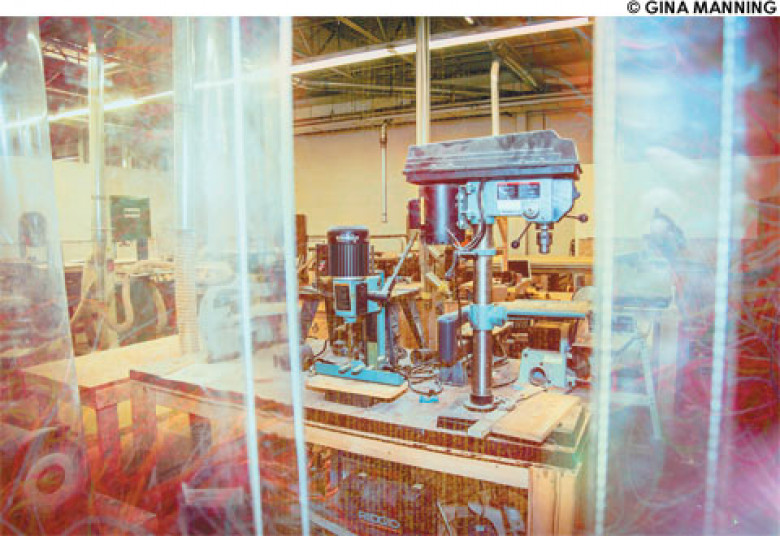Boston's hackerspaces make room for robots and DIY synths, computer geeks, and tech punx
"Hackerspace." At first, that term might bring to mind an image of rows of Internet wizzes staring intently into their screens, coding illegally. But there is more to the term "hacker" than its unfortunate computer-criminal stereotype. A hacker is actually anyone who takes things apart and re-purposes them in cool new ways: that includes programmers and computer-science experts, but also people who turn old printer motors into DIY musical instruments, computer engines into robot parts, strings of recycled Christmas lights into public-art pieces. The hackerspace movement — which has been prevalent in Europe since the mid-'90s and began cropping up more often in the US over the past five years or so — exists at the intersections of technology and electronic art, science and experimental media.
Hackerspaces are the quirky, informal multi-media labs and creative co-working spaces where hackers meet. Imagine a collective woodshop or metalworking shop of the past, updated to meet the tools and technology of the present. In these shared spaces, hackers pool knowledge and resources, and collaborate on ideas. A handful have evolved in Boston in recent years: two are hidden in industrial Somerville buildings (Artisan's Asylum, P.irateship) while others exist at universities (BUILDS at BU, MITERS at MIT). It's hard to say how many hackerspaces exist in Boston, since the term is used loosely — spaces like Fringe and Sprout (both in Somerville) could also be called hackerspaces.










































































